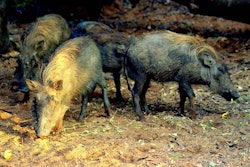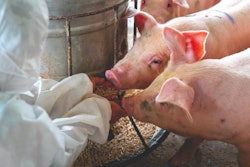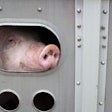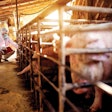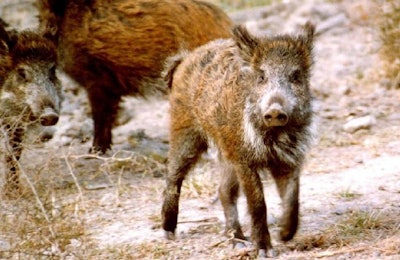
Over the past week, Romania is the only country to have officially recorded new cases of African swine fever (ASF) in domestic pigs.
Sixteen new outbreaks of African swine fever (ASF) were confirmed among small backyard pig herds in Romania from April 9-27. Affected herds ranged in size from one to 25 pigs, according to the country’s official report to the to the World Organisation for Animal Health (OIE). The national veterinary agency records the loss of 86 pigs through mortality or culling to prevent the further spread of the infection.
So far this year, 244 outbreaks of ASF have been confirmed in domestic pigs in Europe, according to an April 27 update from the European Commission (EC). This total has risen by 11 over a period of seven days.
Based on information from this source, worst affected has been Romania with 217 outbreaks, which accounted for 10 of the new cases from the previous week.
Now with 17 outbreaks, Bulgaria’s total has increased by one from last week. For the other countries, the numbers of outbreaks are unchanged: Ukraine (5), Poland (2), and Greece, Lithuania and Moldova, each with one confirmed outbreak since the start of the year.
Germany’s pork industry on alert
With several recently confirmed cases of ASF in wild boar in Poland near to the shared border, Germany’s pig meat producers and processors are on high alert. Deutsche Welle reports that an infected wild boar was found recently in Greater Poland, just 10 kilometers from the border with Germany. As ASF spread in the affected western Polish provinces, around 450 pig farms have been quarantined.
Aiming to keep wild boar from crossing the border into Germany, fences have been erected in the states of Brandenburg and Saxony. Hunters are being urged to get any wild boar they shoot health-checked by the authorities.
As well as the cost to individual farmers, Germany is concerned that its pork exports to China could be stopped abruptly if ASF is confirmed in its domestic pigs. As Europe’s second largest pig meat exporter (behind Spain), any pork rejected by China could flood the European market, causing instability and prices to drop sharply.
ASF outbreaks in European wild boar exceed 5,000
Up to April 26, the EC had recorded 5,117 confirmed ASF cases among Europe’s wild boar population this year. This represents an increase of 367 from the previous week’s total.
At 2,158 and 1,938, respectively, Poland and Hungary have reported the highest number of infected animals since the start of 2020. The Hungarian total has risen by 219 from the previous week, and Poland’s by 115.
Other countries that have reported significant numbers of ASF-infected wild boar to the EC so far this year are Romania (430 cases), Bulgaria (208), Latvia (99), Lithuania (81) and Slovakia (78). Italy, Serbia, Estonia, Moldova, Ukraine and Belgium have also confirmed ASF in wild boar this year, but in no more than 45 animals.
Over the past week, the country reporting the highest number of ASF cases in wild boar to the OIE was Hungary with 277 new cases. Of this total, 211 were found as a cluster in the northeastern region of Borsod-Abauj-Zemplen.
Other European countries reporting new cases in wild boar to the OIE over the past week were Romania (26), Latvia (11) and Moldova (3).
Authorities in Belgium have announced that the forests in the province of Luxembourg will reopen for limited public access from May 15. The most recent case of ASF in the area was found in March. This was in the remains of a wild boar that had died several months previously, according to the Walloon government. Efforts will continue to eliminate any remaining wild boar in the infected area.
ASF situation in Asia
Over the past week, South Korea’s agriculture ministry has informed the OIE of a total of 25 new ASF cases in wild boar in the area bordering North Korea. All were found in the provinces of Gyeonggi and Gangwon, where previous cases have been confirmed.
The latest cases take the country’s total toll on wild animals since September 2019 to approximately 570. The most recent reported outbreaks in South Korea’s domestic pigs was in October 2019.
In China, ASF-related restrictions have been lifted in Yunyang county, Chongqing. There had been no recent new cases of the disease in this area, according to the agriculture ministry. At the start of April, the ASF virus was detected at a small farm in the region after more than 60 pigs died. The rest of the herd was culled, according to the ministry. Enhanced surveillance revealed no further signs of infection over the next 21-day period.
View our continuing coverage of the global African swine fever situation.


